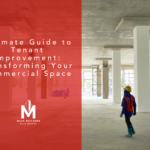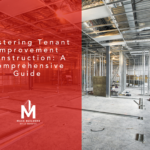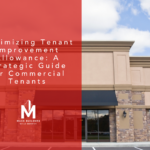The Importance of Understanding Costs in Commercial Real Estate Construction
Commercial real estate construction projects can be complex and costly endeavors. Whether you are a developer, investor, or business owner looking to build or renovate a commercial property, understanding the variables that affect construction costs is crucial. By gaining a comprehensive understanding of these factors, you can make informed decisions, manage your budget effectively, and ensure the success of your project.
1. Location
The location of your commercial real estate project plays a significant role in determining construction costs. Factors such as land availability, accessibility, local building codes, and labor costs can vary greatly from one location to another. For example, constructing a building in a metropolitan area with high demand for commercial space may result in higher land and labor costs compared to a rural area.
It is essential to research and analyze the specific location where you plan to undertake your project. Understanding the local market conditions and cost factors will help you estimate and budget accordingly.
2. Size and Complexity of the Project
The size and complexity of your commercial real estate project directly impact construction costs. Larger buildings generally require more materials, labor, and time to complete. Additionally, complex designs or unique architectural features may require specialized expertise and materials, which can increase costs.
When planning your project, consider the intended use of the space and the specific requirements it entails. Collaborating with architects and contractors who have experience in commercial construction can help you accurately estimate the costs associated with the size and complexity of your project.
3. Building Materials and Finishes
The choice of building materials and finishes significantly affects construction costs. High-quality materials and luxurious finishes often come at a higher price. However, opting for cheaper materials may compromise the durability and overall quality of the building.
It is crucial to strike a balance between cost and quality when selecting building materials and finishes. Consider the long-term maintenance and operational costs associated with different options. Consulting with professionals in the construction industry can help you make informed decisions that align with your budget and desired outcome.
4. Labor and Contractor Costs
Labor and contractor costs are major components of commercial real estate construction expenses. The availability and expertise of skilled labor in a specific location can impact labor costs. Additionally, hiring reputable contractors with a track record of delivering high-quality work may come at a premium.
Obtaining multiple bids from different contractors and thoroughly evaluating their qualifications and references can help you find the right balance between cost and quality. It is essential to establish clear communication and expectations with your chosen contractor to avoid any surprises or cost overruns during the construction process.
5. Permits, Inspections, and Regulatory Compliance
Obtaining permits, conducting inspections, and ensuring regulatory compliance are necessary steps in commercial real estate construction. However, these processes can add to the overall project costs and timelines.
Understanding the specific permits and regulations required for your project and budgeting for associated fees and inspections is crucial. Engaging with local authorities and hiring professionals who are well-versed in the local building codes and regulations can help streamline the process and minimize potential delays and additional costs.
6. Market Conditions and Economic Factors
Market conditions and economic factors can significantly impact construction costs in commercial real estate. Fluctuations in material prices, interest rates, and labor market conditions can influence the overall cost of your project.
Staying informed about market trends and economic indicators can help you anticipate potential cost fluctuations and adjust your budget accordingly. Working closely with your project team and industry professionals can provide valuable insights into market conditions and help you make informed decisions.
Conclusion
Understanding the variables that affect costs in commercial real estate construction is essential for successful project planning and budget management. By considering factors such as location, project size and complexity, building materials, labor and contractor costs, permits and regulatory compliance, as well as market conditions, you can make informed decisions and mitigate potential cost overruns.
Collaborating with experienced professionals in the commercial construction industry can provide valuable guidance and expertise throughout the process. By carefully managing costs and ensuring quality, you can maximize the return on your investment and achieve your desired outcomes in commercial real estate construction.
Call to Action: Master Your Construction Costs with Our Expertise
Navigating the intricacies of costs in commercial real estate construction can be daunting, but you don’t have to go it alone. Whether you’re grappling with location variables, material choices, or labor costs, we’ve got the expertise to guide you through.
Maximize your ROI and minimize surprises by partnering with seasoned professionals who understand every facet of commercial real estate construction. From initial planning to the final inspection, we’re here to ensure your project is not just completed, but accomplished brilliantly.
Ready to turn complexity into success? Reach out for a comprehensive consultation and let us help you manage your construction costs effectively.




